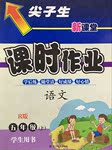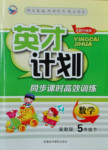题目内容
Tolerance: Respect the difference in others
You may not realize it, but you are doing much more than just studying when you are at school. School is also the place 36 you learn to get on well with people. But this is not 37 easy. What can you do 38 you just don’t like one of your classmates?
If you discover that you have problems 39 your classmates or friends, the most important thing to learn is tolerance. Tolerance is the 40 to realize and respect the 41 in others. We can not change the way that other people do, 42 it is important to learn to live happily with them.
Practicing tolerance will allow everyone to form better 43 with each other. Getting to know someone 44 help you understand why they do things 45 from you. It is important to remember that something different does not exactly mean that it is bad. 46 teaches us to keep an even (平和的) temper and open mind..
You need to 47 an old saying, “Treat others how you want 48 ”. You would like to be treated kindly by your classmates, so it is 49 to treat them with equal kindness. If you tolerate 50 it does not mean that you have to like it. No one is asking you to 51 who you are or what you believe in. Tolerance just means that you should be 52 of the differences in others and not try to make them change.
It is important to 53 tolerance, because it will make everyone’s lives easier. Learn to accept people for their different abilities and interests. The world is very 54 , and practicing tolerance in your own school and city can help make 55 .
1. A.which B.where C.that D.when
2. A.hardly B.seldom C.always D.already
3. A.unless B.since C.because D.if
4. A.getting along with B.making apologies to
C.getting away from D.fleeing from
5. A.reflection B.benefit C.patience D.ability
6. A.characteristics B.thoughts C.things D.differences
7. A.so B.and C.but D.although
8. A.moods B.habits C.relationships D.feelings
9. A.must B.may C.should D.dare
10. A.fortunately B.easily C.differently D.attentively
11. A.Patience B.Experience C.Tolerance D.Kindness
12. A.keep in touch B.keep in mind C.keep up with D.keep away from
13. A.to treat B.being treated C.to be treated D.to be treating
14. A.attractive B.important C.possible D.interesting
15. A.something B.anything C.everything D.nothing
16. A.change B.remind C.promise D.Decide
17. A.convenient B.respectful C.negative D.unselfish
18. A.stop B.cancel C.prevent D.practice
19. A.diverse B.same C.individual D.apparent
20. A.no difference B.an effect C.an apology D.a difference
1.B
2.C
3.D
4.A
5.D
6.D
7.A
8.C
9.B
10.C
11.C
12.B
13.C
14.B
15.A
16.A
17.B
18.D
19.A
20.D
【解析】
试题分析:本文阐述了在我们的人生道路上会遇见很多我们不喜欢的人或者事物,我们要学会容忍和接受,因为我们无法改变别人,那么就要学会与别人快乐的一起生活。
1.B 语法分析。本题的where引导的是一个定语从句,where在句中做地点状语。
2.C 副词辨析。A几乎不B很少C总是D已经;但是这样的话并不总是对的。
3.D 连词辨析。如果你不喜欢你的一个同学,你会怎么做?
4.A 短语辨析。A相处,进展B道歉C远离D逃离;如果你发现和朋友还在同学相处困难…
5.D 名词辨析。A反应B好处C耐心D能力;耐心就是意识并尊重别人与你的差异的能力。
6.D 名词辨析。A性格B思想C事情D差异;耐心就是意识并尊重别人与你的差异的能力。
7.A 语义分析。我们不能改变别人,于是学会和他们一起快乐的生活就显得更重要了。
8.C 名词辨析。A情绪B习惯C关系D感觉;容忍能让我们和别人有更好的关系和联系。
9.B 情态动词辨析。连接本人也许能让我们理解为什么别人做事和我们不一样。
10.C 副词辨析。A幸运地B容易地C不同地D用心地;让我们理解为何别人做事和我们不同。
11.C 上下文串联。本文讨论的话题就是容忍,故C正确。
12.B 短语辨析。A保持联系B记住C跟上D远离;你需要记住找个古老的谚语。
13.C 语义分析。要像我们想要自己被对待的那样去对待别人。
14.B 形容词辨析。A有吸引力的B重要的C可能的D有趣的;平等地对待别人很重要。
15.A 语义分析。你容忍某件事情并不意味着你就喜欢它。
16.A 动词辨析。A改变B提醒C允诺D决定;没有人要求你改变自己。
17.B 形容词辨析。A便利的B尊重的C消极的D无私地;你一个尊重别人的差异。
18.D 动词辨析。A停止B取消C阻止D实践;实践容忍是最重要的事情。
19.A 形容词辨析。A多样化的B同样的C个别的;D明显的;这个世界是多样化的。
20.D 固定搭配。Make a difference起作用,有影响;这个世界上多样化的,在你的学校和城市里练习容忍是可以起很大的作用的。
考点:考查人生哲理类短文
点评:本文讲述了容忍的重要性,本文主要是测试学生综合运用语言的能力,即从语篇的角度综合测试阅读理解能力、词汇的掌握和对英语习惯用语的熟悉程度、以及语法规则的灵活运用。考生做题时必须时刻从上下文考虑,不应该只看到所添的词在短语或句子内是否可行。因此,在做题时最好将全文通读一下,了解了全文的意思以后再作答。

 尖子生新课堂课时作业系列答案
尖子生新课堂课时作业系列答案 英才计划同步课时高效训练系列答案
英才计划同步课时高效训练系列答案Should parents ever hit their children?
Research suggests many of us are likely to respond “no”, and public support for spanking (打屁股) has been falling over the years. But surveys also show that 75 percent to nearly 90 percent of parents admit spanking their child at least once.
I was raised in a zero-tolerance( 零容忍) home for disrespect, and my parents often turned to physical punishment. And, no, I don’t feel I was damaged by it.
Nothing is more annoying than watching ill-mannered behavior from children.
But there is data to suggest that a return to old-school spanking isn’t the answer.
Two years ago , Newsweek reported that it had found data suggesting that teens whose parents used physical punishment were more likely to become aggressive(好斗的).
Murray Straus, professor at the University of New Hampshire in America, has studied the topic of children and spanking for decades. He said that children who were physically punished have lower IQs than their peers. It may be that children with lower IQs were more likely to get spanked, but the punishment may have been counterproductive (反作用) to their mental development, as well.
Some researchers make the argument that occasional open-handed smacks (用巴掌打) on the bottom are not only harmless but can have some benefit.
Last year, Marjorie Gunnoe, a psychologist at Calvin College, studied teens who have never been spanked. There are a greater number of children growing up without ever having been physically punished. Gunnoe’s research suggests they don’t turn out any better than those who were sometimes spanked.
There are some parents who simply cannot control their tempers. But I still believe that the best parents are the ones who are able to offer fair and firm discipline (管教) without ever turning to physical punishment.
【小题1】 What can we know from the research in the second paragraph?
| A.Many of the parents made no response to the survey. |
| B.More and more people support spanking in public. |
| C.Most parents have the experience of spanking their children. |
| D.Many of the parents think they should hit their children. |
| A.the children who have never been spanked do better than those who were sometimes spanked |
| B.instead of harmless, spanking can have a little benefit |
| C.spanking has little effect on the children’s future performance |
| D.the teens who were often spanked are more likely to be aggressive |
| A.who often use physical punishment | B.who never use physical punishment |
| C.who use physical punishment properly | D.who take physical punishment as useful tool |
| A.The author’s parents were strict with him when he was young. |
| B.The author thinks his parents’ spanking did no harm to him. |
| C.Murray Straus thinks spanking has nothing to do with children’s IQs. |
| D.Some parents spank their children because they can’t control their tempers. |